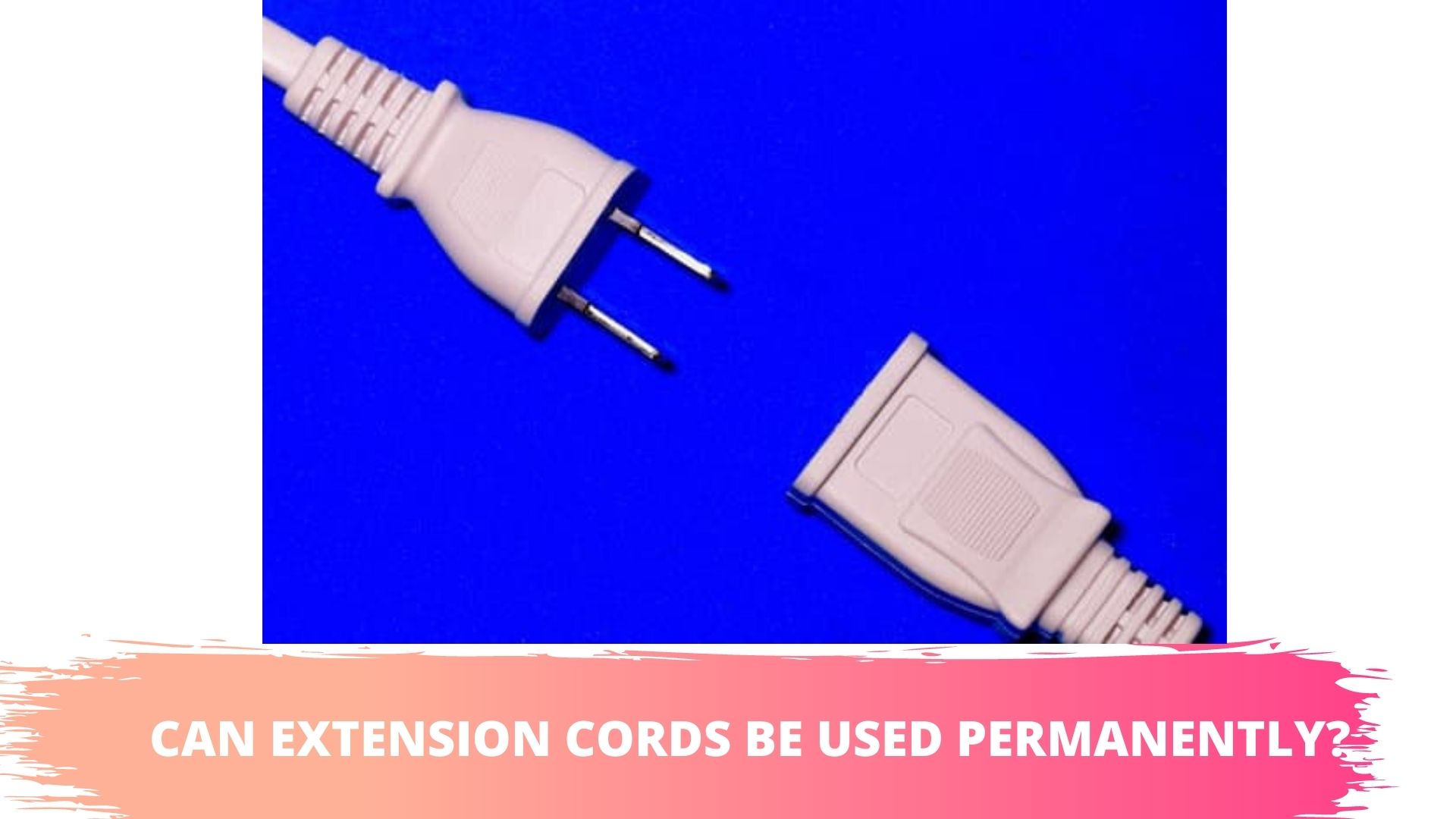People use extension cords because they either don’t have enough outlets in the vicinity of their appliance or the device they want to operate is in an awkward location such as the ceiling. Professional electricians understand the important role that extension cords play, and they approve of their use, but only if they are temporary.
Can you use an extension cord permanently? No, you cannot. The extension cord will wear out eventually. And a worn-out extension cord can harm you and your equipment, which is why you are encouraged to replace extension cords once their warranty expires.
They frown upon people that use extension cords for more than a few days. However, that hasn’t stopped anyone from using extension cords as a permanent solution to their electrical problems. But is this practice acceptable? Can you use extension cords as permanent wiring?
Yes, you can. However, it is a risky proposition, which is why the electrical code in many regions prohibits people in commercial settings from using extension cords as permanent wiring. Keep reading and you will see why.
Can Extension Cords Be Used Permanently?
No, you cannot. Staebler Insurance has already pointed this out: extension cords don’t have expiration dates but they tend to wear out over time. If you make regular use of these devices, they will slowly but surely lose their effectiveness.
In the best-case scenario, they will simply die. In the worst-case scenario, they will malfunction, causing voltage fluctuations and ultimately harming your appliances. In that regard, you cannot use extension cords permanently.
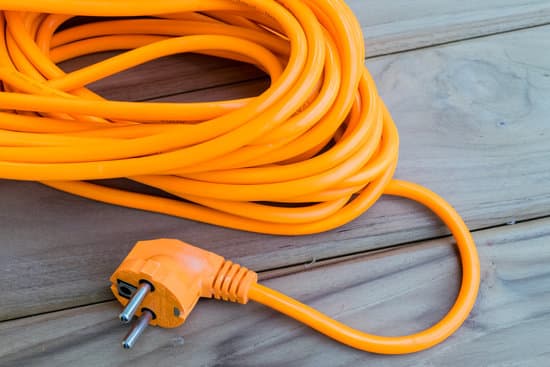
You cannot rely on them to maintain their efficacy in the long-term. To prevent fatal accidents, you are better off throwing your extension cord out when the warranty expires.
That being said, if all you want to know is whether or not you can use extension cords until they die, the answer is ‘Yes’. Again, professional electricians frown at this practice. Various fire and electrical codes in various regions have also warned against the permanent use of extension cords.
As far as the authorities are concerned, consumers should only use extension cords in the short term while they take steps to install a more secure solution such as a wall receptacle near the appliance they want to operate.
But that hasn’t stopped people from using extension cords as ‘permanent’ wiring solutions. No one will bat an eye if you do the same.
Why Is It A Bad Idea To Use Extension Cords Permanently?
The government discourages this habit because it is associated with several risks, including:
1). Tripping
This is one of the most obvious dangers of extension cords. It is also the one hazard people tend to dismiss. But that is a mistake. Extension cords consist of a cord that can range from a few dozen to several hundred feet. It is more than capable of tripping the user, especially if it has been positioned in the same place for several weeks and months. You have a higher chance of forgetting that it is there and tripping over it as a result
2). Damage
These devices are quite easy to damage. Even if you’re too careful to trip over the cord, you are just as likely to walk on it, or lean a heavy object against it, or expose it to water. There are so many ways to damage a cord that is left out in the open over the long-term. And a damaged extension cord can lead to fires and electrocutions.
3). Heat
These devices don’t always stay exposed. People eventually cover them with blankets, clothes, rugs, and the like. This leads to a build-up of heat which makes them a fire hazard.
4). Overloading
Extension cords are prone to overloading. They are designed to accommodate a limited amount of current. But most people don’t know this, which is why it has become quite common for homeowners to overload their extension cords by plugging multiple devices into them.
Some homeowners do not hesitate to operate heavy appliances like microwaves using extension cords. They tend to escape relatively unscathed because their extension cords give out before they can electrocute them or start a fire. But some people are not so lucky. This is why the authorities discourage the use of extension cords as a permanent wiring solution. They are too dangerous.
Is There A Way to Safely Use Permanent Extension Cords?
If you want to use permanent extension cords, either because you can’t be bothered to invest in a better solution or your situation won’t permit you to install a wall receptacle, the following tips will prevent your permanent extension cord from causing a disaster:
1). Power Strip
First of all, if you must use a permanent extension cord, The Electric Connection is convinced that you are better off using a power strip, preferably one with a circuit breaker. This makes the power strip safer because the circuit breaker can protect you and your appliances from the consequences of a short circuit or overload.
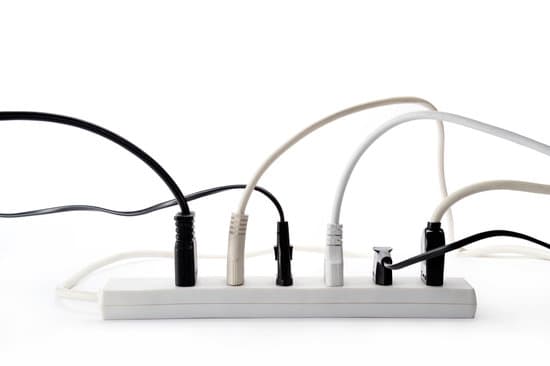
You are still expected to occasionally replace the power strip. You cannot use the same power strip for years at a time. The circuit breaker will deteriorate, exposing you to all the dangers associated with extension cords.
2). Installation
Some people are unwilling to leave extension cords out in the open. Because they want the devices to remain in place permanently, and because they want to avoid tripping hazards, they will take steps to fix their extension cords to a wall, the side of a table, the back of a closet, etc.
While this approach makes sense, OHS has warned homeowners against the use of staples and metal nails. They may damage the cord’s jacket, a development that can turn an extension cord into a fire and electrocution hazard.
These jackets are quite soft. They allow the extension cord to remain flexible. So it doesn’t take nearly as much as you expect to damage them. If you damage the jacket, you should consider replacing the extension cord. While you can continue to use it by applying duct tape, it is still a threat to your health, especially if the nails pinched a wire.
3). Ventilation
Besides the use of nails and staples, it is also a bad idea to eliminate tripping hazards by covering the extension cord. ESFI doesn’t want homeowners to place extension cords inside walls, within the ceiling, or under the floor. The heat generated won’t escape. This can start a fire.
4). GFCI
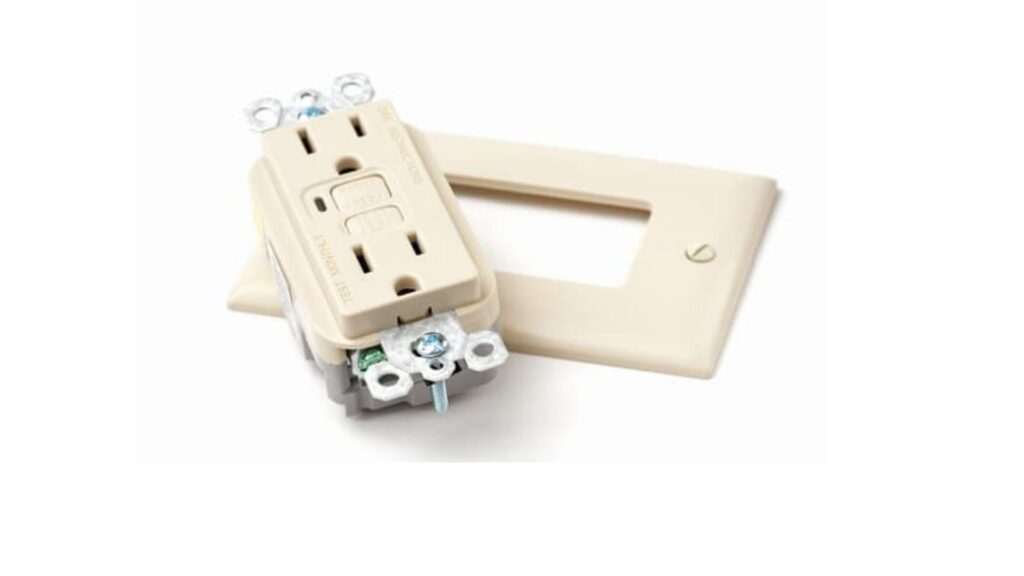
Use ground fault circuit interrupters. If a ground fault occurs, GFCI technology will cut the power to the permanent extension cord, preventing it from doing any harm. Some extension cords have GFCI protection. If yours doesn’t, make sure you plug the extension cord into a GFCI-protected wall receptacle.
Best Permanent Outdoor Extension Cords
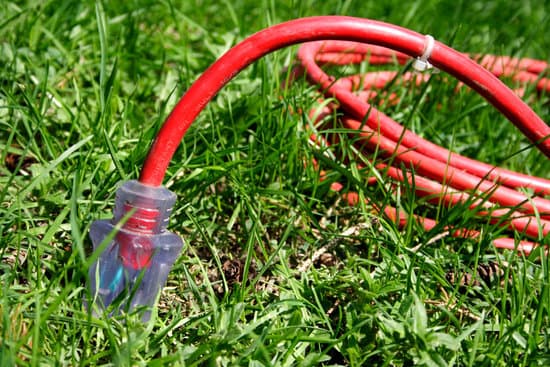
You cannot use an indoor extension cord outside. They cannot handle the stress. However, it isn’t enough to invest in any random outdoor extension cord you come across, not if you want to use it permanently. You cannot find the best permanent outdoor extension cords without taking the following factors into account:
1). Label
Before you concern yourself with attributes like the gauge and category, you have to ensure that you have an actual outdoor cord on your hands. State Farm clearly states that you cannot use an indoor extension cord outside.
This is especially true for permanent extension cords. This is why you should look for a ‘W’ mark on any cord you buy. The letter proves that the device was meant for use outside. ‘S’ means that the cord is meant for general use. Many of the devices on the market are general-use extension cords. You cannot trust them to work as a permanent outdoor wiring solution, particularly in situations that involve the use of power tools.
2). Category
Brase Electrical categorizes outdoor cords as ‘Occasional Use’, ‘Frequent Use’, and ‘Rugged Use’. The category you select will depend on the purpose you have in mind. Obviously, you cannot use ‘Occasional Use’ extension cords as a permanent wiring solution.
You are better off using ‘Frequent Use’ models. Commercial sites are compatible with rugged outdoor cords that can accommodate powerful tools and stressful environments.
3). Gauge
The gauge is one of the most important factors. It determines the amount of current an extension cord can carry. Even with indoor extension cords, professional electricians will encourage you to select a high gauge.
If you want to use the extension cord permanently, the highest gauges are the thickest and, thus, the safest. This applies to outdoor models as well. You should look for products whose gauge falls somewhere between 18AWG and 10AWG.
Commercial sites require the highest gauges because you have to plug high-powered tools that use a lot of electricity into the extension cord. The only way to reduce the risks associated with extension cords is to get a model that is strong enough to carry the current those tools require.
The gauge and length go hand in hand.
The longer the cord, the greater the gauge.
This is the only way to compensate for the increased resistance.
4). Rating
You need an extension cord whose capacity matches the amperage rating of the tools you want to operate.
If the rating of the extension cord is lower than the rating of the items you want to power, the extension cord will overload.
5). Certification
The best extension cords for outdoor use are certified by organizations like Underwriters Laboratories that test them thoroughly to ensure that they meet international safety standards. You cannot trust a permanent outdoor cord that doesn’t have the necessary certification.
Conclusion
The authorities do not want people to use extension cords permanently because they present a fire, electrocution, and tripping hazard. If you are determined to use an extension cord over the long term, don’t cover it.
You shouldn’t pass it through walls, ceilings, and floors. If you do, the heat will accumulate and a fire will start. Be careful when affixing it to objects like walls and tables. Nails and staples can puncture the jacket.
For the best results, you should use GFCI protection. That applies to outdoor extension cords as well. It is important to select a cord of the right gauge, category, rating, and length. But none of those factors will help you if moisture infiltrates the device. You need GFCI protection to prevent fires and electrocutions.

